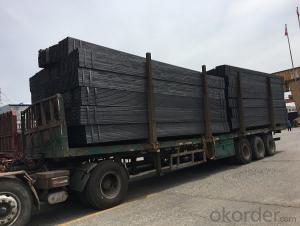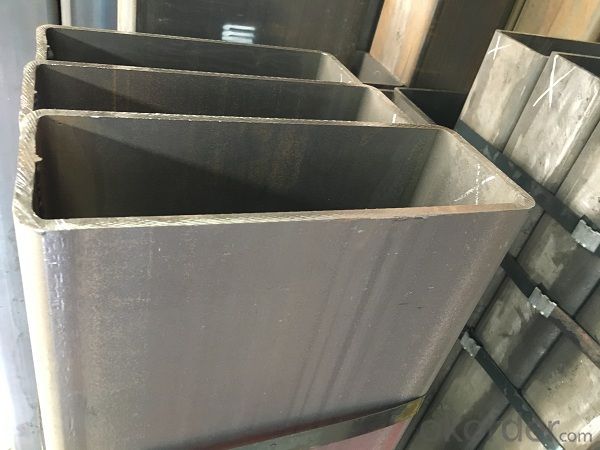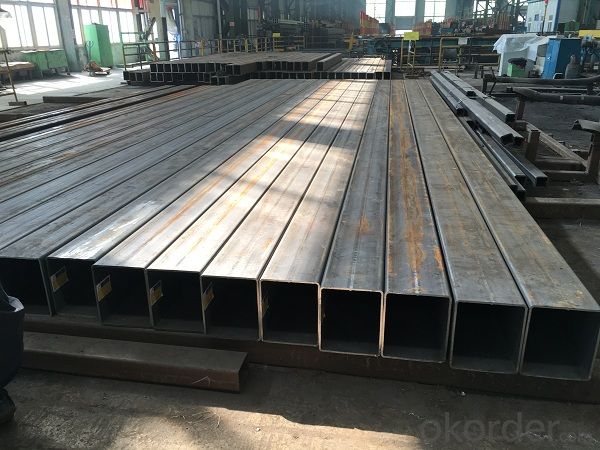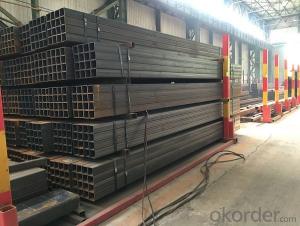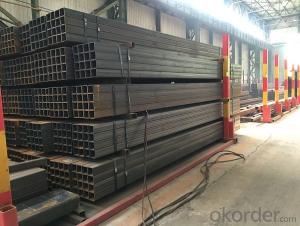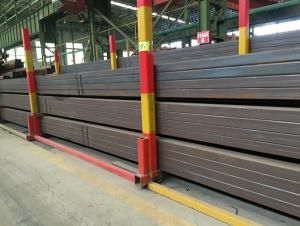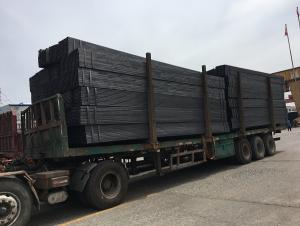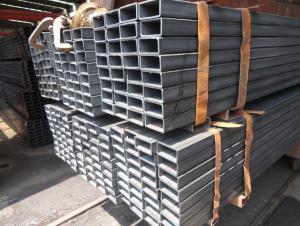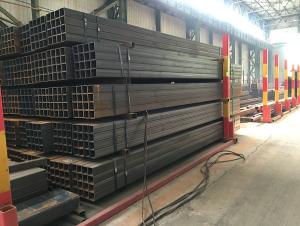Square rectangular tube for high quality structure
- Loading Port:
- Tianjin
- Payment Terms:
- TT OR LC
- Min Order Qty:
- 10 m.t.
- Supply Capability:
- 9000 m.t./month
OKorder Service Pledge
OKorder Financial Service
You Might Also Like
Specification
1、Structure of Square rectangular tube for high quality structure
Square tube, square tube is a kind of call and rectangular tube, is equal and not equal to the length of steel pipe. Is the strip through the process of processing roll system. In general is the strip through the demolition of the package, flat, curly, welded to form a circular tube, and then rolled into a square tube and then cut into a square tube and then cut into the required length.
2、Main Features of Square rectangular tube for high quality structure:
• High manufacturing accuracy
• High strength
• Small inertia resistance
• Strong heat dissipation ability
• Good visual effect
• Reasonable price
3、 Square rectangular tube for high quality structure Specification:
Standard | GB, DIN, ASTM |
Grade | 10#-45#, 16Mn 10#, 20#, 45#, 16Mn |
Thickness | 1.5 - 25 mm |
Section Shape | Square and rectangular |
Outer Diameter | 20*20 mm-------400*400mm 20*30mm*300*500mm |
Place of Origin | Tianjin, China (Mainland) |
Length | 3-12M |
Outer Diameter | 20*20 mm-------400*400mm 20*30mm*300*500mm |
Grade | 235B 345B |
Standard | ASME, ASTM |
1) Material:(ASTM A 106/A53 GRB.API5LGRB,GB,235B,345B
2) Specification range:OD: 20*30mm----300*500mm 20*20 mm---400*400mm ,WT: 1.5 - 25 mm ,length:3-12m or according to the requirement of clients.
3) Excutive standards:GB,ASME API5L.ASTM A 106/A53,Despite of the above
4) Surface:black lacquered,varnish coating or galvanized.
5) Ends:Beveled or square cut,plastic capped,painted.
6) Packing:bundles wrapped with strong steel strip,seaworthy packing.
4、Packaging & Delivery
Packaging Details: | seaworthy package,bundles wrapped with strong steel strip |
Delivery Detail: | 15-30days after received 30%TT |
5、FAQ of Square rectangular tube for high quality structure:
①How is the quality of your products?
Our products are manufactured strictly according to national and internaional standard, and we take a test
on every pipe before delivered out. If you want see our quality certifications and all kinds of testing report, please just ask us for it.
Guaranteed: If products’ quality don’t accord to discription as we give or the promise before you place order, we promise 100% refund.
②How about price?
Yes, we are factory and be able to give you lowest price below market one, and we have a policy that “ for saving time and absolutely honest business attitude, we quote as lowest as possible for any customer, and discount can be given according to quantity”,if you like bargain and factory price is not low enough as you think, just don’t waste your time.Please trust the quotation we would give you, it is professional one.
③Why should you chose us?
Chose happens because of quality, then price, We can give you both.Additionally, we can also offer professional products inquiry, products knowledge train(for agents), smooth goods delivery, exellent customer solution proposals.Our service formula: good quality+good price+good service=customer’s trust
SGS test is available, customer inspection before shipping is welcome, third party inspection is no problem.
6、 Square rectangular tube for high quality structure Images:
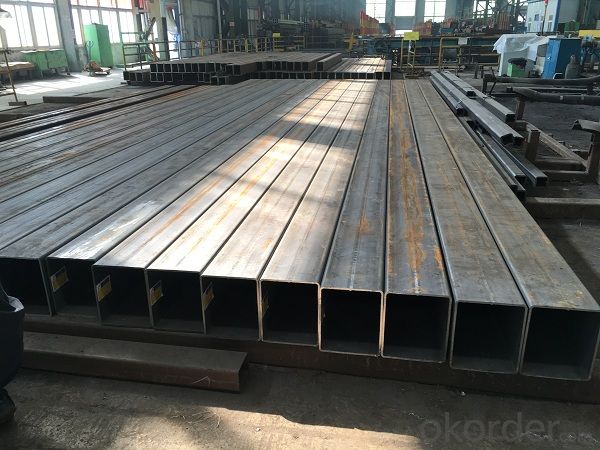
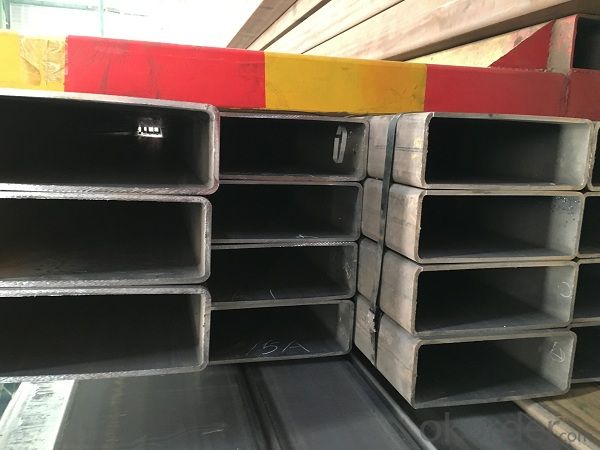
- Q: Can steel pipes be used in plumbing systems?
- Yes, steel pipes can be used in plumbing systems. Steel pipes have been traditionally used in plumbing systems for their durability, strength, and resistance to corrosion. However, other materials like copper and plastic pipes have become more popular in recent years due to their ease of installation, lower cost, and better resistance to certain types of corrosion.
- Q: How are steel pipes used in the transportation industry?
- Steel pipes are commonly used in the transportation industry for various purposes such as the construction of pipelines, including oil and gas pipelines, water pipelines, and sewage pipelines. They are also used in the manufacturing of automotive parts, such as exhaust systems, and in the construction of infrastructure such as bridges and tunnels. Additionally, steel pipes are used in the transportation of goods through shipping containers and railway tracks.
- Q: How are steel pipes used in the construction of high-rise buildings?
- Steel pipes are commonly used in the construction of high-rise buildings for various purposes. They are primarily used as structural elements, forming the framework and supporting the weight of the building. Steel pipes provide strength and durability, making them suitable for withstanding the vertical and lateral loads experienced by tall buildings. Additionally, steel pipes are used for plumbing and electrical systems, as well as for heating, ventilation, and air conditioning (HVAC) installations. Their versatility, reliability, and ease of installation make steel pipes an essential component in the construction of high-rise buildings.
- Q: How are steel pipes measured and sized?
- Steel pipes are commonly measured and sized based on their outer diameter (OD) and wall thickness. The OD is measured using a caliper or tape measure, while the wall thickness can be determined by either a micrometer or ultrasonic thickness gauge. This information is crucial for classifying pipes into various standardized sizes, such as schedule or nominal pipe sizes, which are widely used in the industry.
- Q: What are the advantages of using steel pipes in the mining industry?
- One of the key advantages of using steel pipes in the mining industry is their exceptional strength and durability. Steel pipes can withstand high-pressure environments, heavy loads, and harsh conditions commonly found in mining operations. Additionally, steel pipes are resistant to corrosion, which is vital in mining where water and other chemicals are often present. Moreover, steel pipes offer excellent thermal conductivity, allowing for efficient transportation of fluids, such as water or slurry, crucial for mining processes. Lastly, steel pipes are relatively easy to install and maintain, making them a preferred choice for mining projects.
- Q: Can steel pipes be used for transporting gases and liquids?
- Yes, steel pipes can be used for transporting gases and liquids. Steel pipes are known for their high strength, durability, and resistance to corrosion, making them an ideal choice for transporting various substances. Additionally, steel pipes have the ability to withstand high pressure and temperature, making them suitable for a wide range of applications in industries such as oil and gas, water supply, and chemical processing.
- Q: What are the different types of pipe fittings used with steel pipes?
- There are several types of pipe fittings commonly used with steel pipes, including elbows, tees, reducers, couplings, unions, flanges, and valves.
- Q: What are the advantages of using steel pipes in construction?
- There are several advantages of using steel pipes in construction. Firstly, steel pipes are highly durable and have a long lifespan, making them ideal for long-term projects. Secondly, steel pipes have a high strength-to-weight ratio, meaning they can support heavy loads without being bulky or cumbersome. Additionally, steel pipes are resistant to corrosion, which ensures their longevity and reduces maintenance costs. Moreover, steel pipes are adaptable and can be easily fabricated and customized to fit specific project requirements. Lastly, steel pipes are eco-friendly as they can be recycled, reducing waste and promoting sustainability in construction.
- Q: What is a steel pipe?
- A steel pipe is a cylindrical hollow tube made primarily of steel, commonly used for transferring fluids and gases, as well as structural applications in construction and industrial settings.
- Q: Is it good to buy a simple wardrobe or a steel pipe?
- If the home place is big, buy Wooden, good-looking durable, if the place is small, buy cloth, easy to receive, mobile, tidy and cheap.
Send your message to us
Square rectangular tube for high quality structure
- Loading Port:
- Tianjin
- Payment Terms:
- TT OR LC
- Min Order Qty:
- 10 m.t.
- Supply Capability:
- 9000 m.t./month
OKorder Service Pledge
OKorder Financial Service
Similar products
Hot products
Hot Searches
Related keywords
